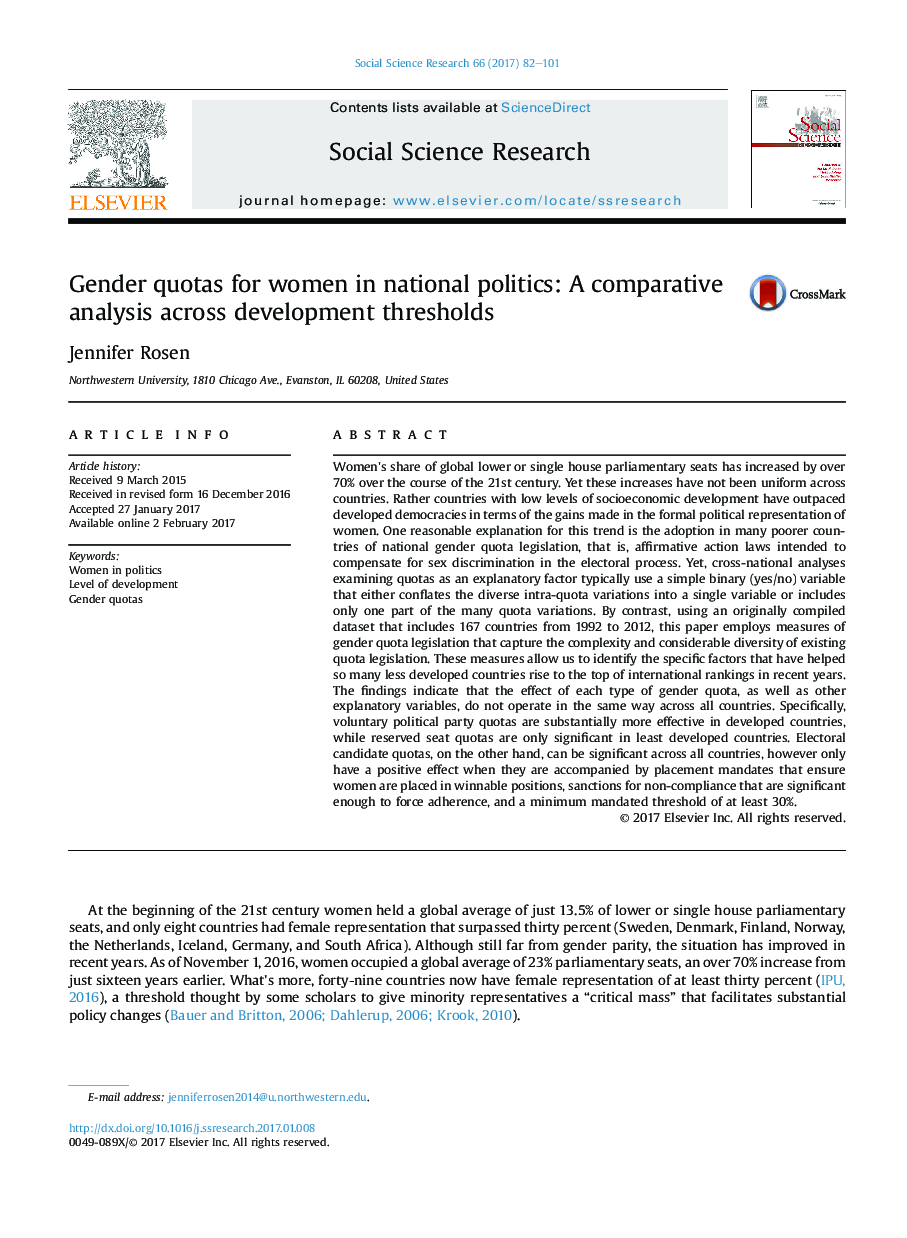| کد مقاله | کد نشریه | سال انتشار | مقاله انگلیسی | نسخه تمام متن |
|---|---|---|---|---|
| 5047015 | 1476109 | 2017 | 20 صفحه PDF | دانلود رایگان |
Women's share of global lower or single house parliamentary seats has increased by over 70% over the course of the 21st century. Yet these increases have not been uniform across countries. Rather countries with low levels of socioeconomic development have outpaced developed democracies in terms of the gains made in the formal political representation of women. One reasonable explanation for this trend is the adoption in many poorer countries of national gender quota legislation, that is, affirmative action laws intended to compensate for sex discrimination in the electoral process. Yet, cross-national analyses examining quotas as an explanatory factor typically use a simple binary (yes/no) variable that either conflates the diverse intra-quota variations into a single variable or includes only one part of the many quota variations. By contrast, using an originally compiled dataset that includes 167 countries from 1992 to 2012, this paper employs measures of gender quota legislation that capture the complexity and considerable diversity of existing quota legislation. These measures allow us to identify the specific factors that have helped so many less developed countries rise to the top of international rankings in recent years. The findings indicate that the effect of each type of gender quota, as well as other explanatory variables, do not operate in the same way across all countries. Specifically, voluntary political party quotas are substantially more effective in developed countries, while reserved seat quotas are only significant in least developed countries. Electoral candidate quotas, on the other hand, can be significant across all countries, however only have a positive effect when they are accompanied by placement mandates that ensure women are placed in winnable positions, sanctions for non-compliance that are significant enough to force adherence, and a minimum mandated threshold of at least 30%.
Journal: Social Science Research - Volume 66, August 2017, Pages 82-101
